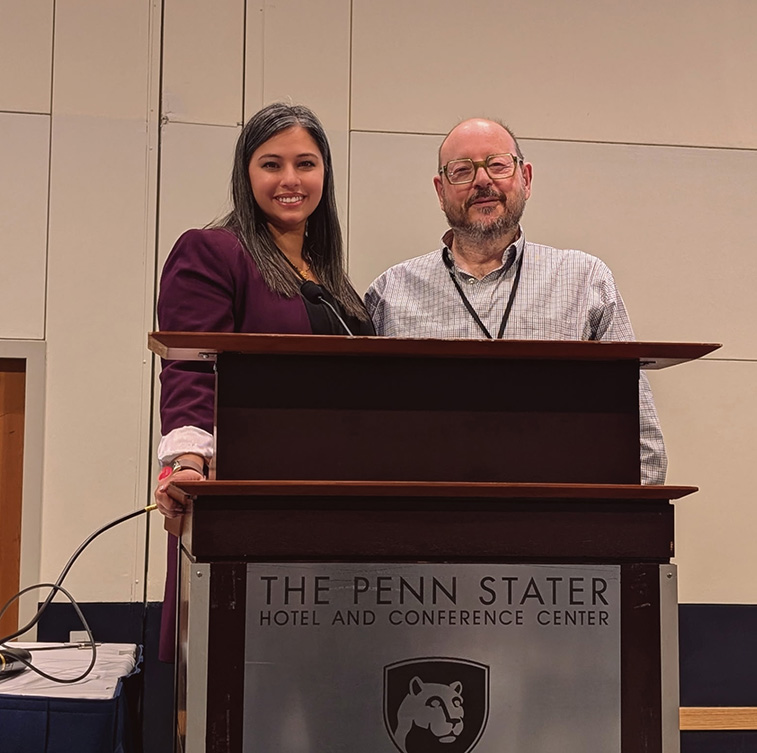Appelbaum Delivers Keynote Plenary at Major Mathematics Education Conference

Professor of Education Dr. Peter Appelbaum delivered the opening plenary address at the 2025 North American Psychology of Mathematics Education Conference alongside Dr. Boni Fernandes Wozolek of Penn State Abington. The 47th annual conference was held Oct. 27-29 in State College, Pa.
The address, titled “Facing Our Fears: What if We Really Changed Things?” challenged the overall theme of the conference, Changing Mathematics Education by Educating for Change, by provoking the approximately 400 participants to consider that they need to first focus on changing themselves. Appelbaum shared several examples from his career for how to pursue this goal.
“One strategy is to enact ‘nomadic epistemology’ using common sense terms in new ways, shifting both what researchers and teachers think about and how they work,” he explained.
According to Appelbaum, nomadic epistemology, a philosophical strategy inspired by work with nomadic populations such as the Roma people in Europe, seeks to find concepts that are both/and at the same time as neither/nor. The approach draws on the efforts of social workers to assist these populations in navigating government agencies that expect families to be categorized as either homeless or homed.
Appelbaum and Wozolek also challenged the conference participants to consider the numerous ways in which their own research and teacher education efforts were “the problem to be solved.”
“This shifts the profession away from thinking of the world as filled with resources for solving problems,” Appelbaum said, “and toward dramatic changes in what mathematics and mathematics education might become.”
The plenary culminated in the theme of understanding fear as both characterizing contemporary experiences in school mathematics, and as a dominant source of resistance to change in research and teacher education. Appelbaum asked the participants to confront their fears of changing themselves, analogous to the many fears that are expressed in the cultural trope, “I’m not a math person.”
“How is it okay that anyone says this?” Appelbaum asked when reflecting on the plenary afterward. “Why do they say this? Why do we persist with a curriculum that fails our students, distances them from the joys and pleasures of mathematics?”
He noted how mathematical explanations of crises–such as the exponential spread of a virus in a pandemic, differences in racial profiling, or patterns in severe weather or mass migration–often increase anxieties instead of helping to solve problems. These explanations further alienate the majority of society from the mathematics that they might use to make meaning out of their lives.
The ideas for the plenary address are collected in Appelbaum’s two recent books, “The Creative Mathematics Teacher’s Book of Lists” and “Post-Anthropocene Civic and Global Education Studies: Beyond the Post-Human.”

